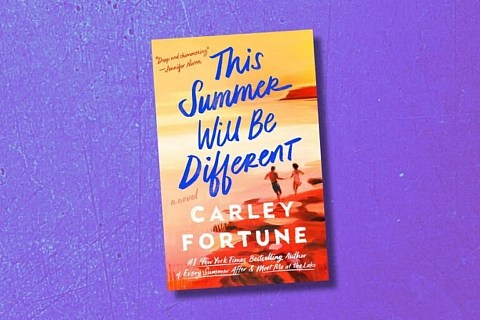Love is the universal language that fills up every vessel of every heart. It faces no language barrier, goes beyond the spoken word and stays true when shaped by the beauty of music in Bollywood.
Here is a list of love songs that spark a fire of sweet and sorrowful emotions.
“Main Agar Kahoon” (from Om Shanti Om)
Arguably one of Shah Rukh Khan’s most iconic film songs, it describes how it is nearly impossible to find words in any language to describe the beauty of his desired lover. With great difficulty, his character Om uses imagery to describe his desired lover Shanti, such as “the flowing scarf is like a cloud,” painting her in an ethereal light, which is emotionally paired with the soft music encapsulating older Disney love songs.
It makes one feel as if they are magically transcending a cloud of love and makes them wish they too, are dancing in a snow globe, much like the one in the film that symbolizes Om’s love for Shanti.
“O Re Piya” (from Aaja Nachle)
This song is about how the male lover’s world expands and transforms as he seeks to enter into his lover’s world. Love can be a very strange thing, as in his case the raindrops will never come, and she is not harmed when she runs on top of the aforementioned burning coals.
He seeks to learn more about her as he wants to be taken to the place she calls home. In one lyric, he encompasses this when he says “Ignorance will forever be enemy.” It seems to be a growing phenomenon where male lovers cannot even name their female partner’s favorite food or color, but not in this song, where he seeks to learn everything about her and why she has such an impact on every aspect of his life.
“Maula Mere Maula” (from Anwar)
This is the song that should have been played during Kate Sharma and Anthony Bridgerton’s dance. Meaning “God, My God,” it is about the pure love one experiences, the kind where all senses are flooded with the thought of his lover.
With her beautiful eyes, humorous words and bountiful hair, there is nothing else he would rather want to be surrounded by. He even desires to build her a house to live in, where he would be her lover if she wants it. The repeated chorus of “maula mere” expresses the utter adoration that leaves him speechless, that those two words are all that is needed. The repeated ending verses are an acknowledgment that the one God loves the most is the one who lets love fill their hearts, and the repetition truly drives that sentiment into the hearts of listeners.
“Tum Se Hi” (from Jab We Met)
A sweet song about how the sudden absence of his lover is heavier than with her presence. In the film, the two characters Geet and Aditya are reluctant travel companions, especially as Aditya is initially very annoyed by Geet, until he soon realizes he is falling in love with her endless extroverted enthusiasm.
Compared to the rest of the soundtrack, with an emphasis on drums and synthetic pop, this song is softer, reflecting the feeling of falling in love. Despite being polar opposites in personality and facing many hardships, it shows that it is possible to find love despite all of these challenges, making the process all the sweeter.
“Tere Bina” (from Guru)
Another soft song about how impactful her absence is, this one focuses on how everything loses its beauty and charm when his presence loses hers. He sings about how “the nights are tasteless without you,” meaning they have no beauty in their passing despite everything associated with them, such as the moon. They no longer are special, instead are a nuisance.
He specifies in another line that the moon’s shine is fake, more like coarse yellow sand that is as dry and withered as the nights now are. Even gold loses its beauty, turning into copper, and unless she returns to his side, there is no more beauty in anything once perceived as such. The beat of the dholki drum heightens the sense of urgency to be reunited again, and paired with the woman’s voice belting out a vocalization, it’s as if he can hear her despite her absence, showing just how much this situation is hurting his heart.
“Tum Hi Ho” (from Aashiqui 2)
While this song is also about the absence of his female lover, this one is about how affected his very soul is without her. It’s as if the peace of his very existence is threatened by her absence, filling him up with only pain, as “if (he gets) separated from (her), then (he’ll) be separated from (himself).”
He lives only for her, devoting himself to her the way she’d voted her loyalty towards him, letting him let go of the sadness and instead feel complete. Because, with her, it brings him a welcoming sense of “peace and pain,” in a way that he can’t bear to stay away and breathe anything else but her name. The piano sets a sorrowful tune for listeners as they hear him sing his woes and heartbreak.
“Tera Hone Laga Hoon” (from Ajab Prem ki Ghazab)
An iconic song sung by Atif Aslam, it’s about how the male character wants to tell his female counterpart just how much in love he is with her but doesn’t understand why he can’t simply confess his feelings, and the same goes for her. All he longs for is to wrap his arms around her, to fulfill his past dreams and she wants to do the same, to act through the feelings of love.
It seems as if the weather itself agrees with them, sending drops of rain in the shower of love they both want to bask in as they realize just how much they want to lose themselves for each other in the name of love, like a pearl on the ocean that needs healing.
“Tujhe Dekha Toh Ye Jaana Sanum” (from Dilwale Dulhania Le Jayenga)
A timeless song about forbidden love as the female character is betrothed to another man. Despite the sorrows of this situation filling their hearts, they begin to smile as her eyes and his dreams, his tears and her eyes, this life and his breaths, all intertwine into a sweet comfort of love.
They’ve learned that love can be a crazy thing, which makes her wish to die in his arms if she has to go anywhere else, as “her heart is not interested in anything” besides his own. Their voices complement each other divinely, singing with their hearts on their tongues as they relish in the shared love and compassion they desire to live in.
“Haule Haule” (from Rab ne Bana di Jodi)
The main character Surinder sings about how love can happen slowly if you are patient for it, disguised as his wife’s dance partner who doesn’t recognize him, which is a little ironic. The internal conflict of love is strong, but throughout the song, he highlights how everything in their world requires patience and that soon it will all fall into place.
There are many connections between real life and their own lives, such as how the winds drift slowly, medicines work slowly, prayers are answered in time and the moon rises slowly, so too will her heart fall in love. His voice betrays his growing sense of worry by the end, trying to get her to understand everything he’s said, as he wants her to fall in love with him as her husband, not as her dance partner.
“Zaalima” (from Raees)
Zaalima, meaning the “cruel one” in the feminine form, is what the male character calls the woman he falls in love with as he sees how he reacts to her as cruel acts. He already longs for her, is intoxicated by her love, expresses it and drowns him in her perfume, so why does she keep tormenting him this way?
He sings in a tone of bewilderment, wondering why she must put him through this, which is combated by her tone of desperation. She also feels as if this situation is wronging her with such torment, but more so because she doesn’t understand what she’s done to be called cruel.
The ending verses follow a change in rhythm as they increase in tempo, matching the hurt confusion of how he’s seemingly turned this situation on her, and listeners really feel the flurry of emotions coursing through her.





Recent Comments